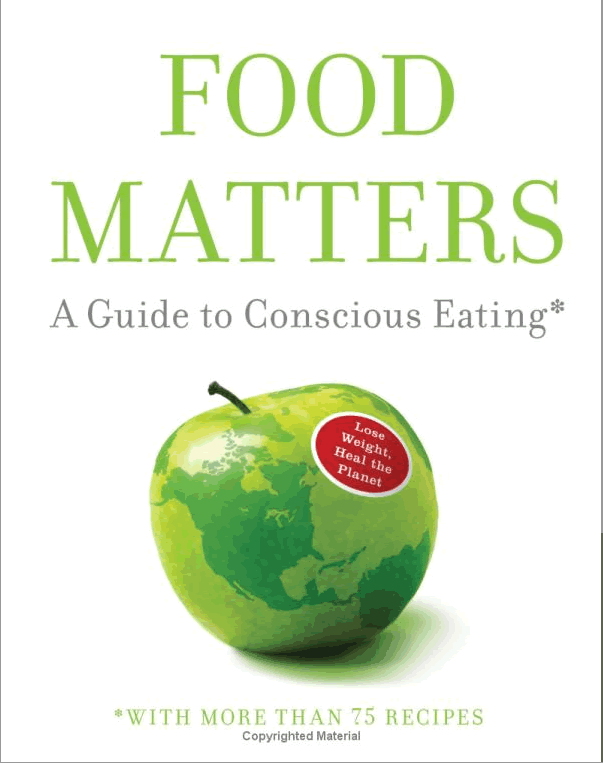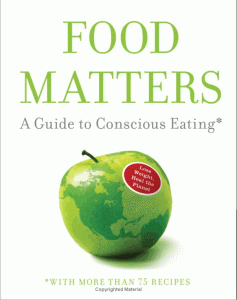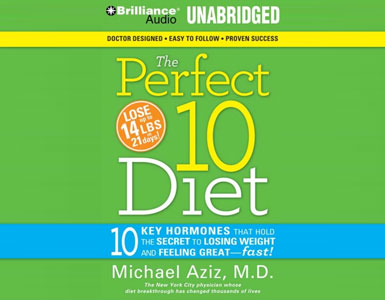In conjunction with my first Food Matters Project blog post, I thought I would review Mark Bittman’s Food Matters: A Guide to Conscious Eating. For those of you new to Badger Girl Book Club, every week I review a book about food, eating, diet, or a cookbook. For past Badger Girl Book Club picks, check out the Badger Girl Book Shelf.
This week I picked up Food Matters: A Guide to Conscious Eating by Mark Bittman.
Summary
Mark Bittman is a food writing all-star. New York Times columnist, cookbook writer extraordinaire, foodie of the nth degree, you name it. I mean, the guy wrote a cookbook, How to Cook Everything. I don’t know if it is possible to have more street cred than Mark Bittman.
The background is that he got diagnosed with some health problems that all stemmed from being overweight. Around the same time, he read a report that linked cattle production to greenhouse gases in a way that even a seasoned foodie couldn’t ignore. This was his Come-to-Jesus moment and he realized that he needed to make some serious changes in his lifestyle. Being a foodie, he did not want to give up the pleasure of food but knew he couldn’t eat every meal like his last. So he decided to be vegan until 6 pm and then all bets were off. Dinner could be a big juicy steak or a creamy omelette, but until dinner he had to stick to an all-plant, healthy grain diet.
The Approach
I LOVE this approach. This is the average Joe’s way to eat clean. It’s realistic, it’s healthy, and it’s a big improvement from the average American diet. What’s not to like? I think Bittman found a way to get more Americans to choose plants without locking themselves in an all or nothing position. Amen brother
Like Bittman, we are vegan 90% of the time. Because of our diet-education, we don’t eat a lot of meat, we don’t eat processed foods, and we stay away from refined flours (or really any flours). Unlike Bittman, we don’t let totally loose at dinner and stay away from pasta. We have also not thought about the environmental impact we have with our diet and I think he did a good job of sharing how much we can help reduce our carbon imprint as a nation if we reduce our meat intake.
The Voice
Let the writing gods forgive me, I had a hard time getting through this book. Isn’t that awful? Foodie bloggers, are you going to shun me now?
It seemed like Bittman was trying to call the masses to action, but he couldn’t quite raise enough enthusiasm. Maybe that was passion for a food writer, but I spent a lot time of in graduate school reading revolutionary manifestos (my dissertation was going to be on theatre during revolutions in the Russia, the Czech Republic, and China). It’s hard to raise my blood pressure with even-keel writing. Where are the cuss words, the blood, the passion? Bittman’s journalistic approach won’t incite a crowd, but it will teach them a thing or two.
It could also be that I wasn’t hearing this information for the first time. I have read other books with similar messages and I am just not surprised by anything anymore. American eat too much crap? Duh. Look at us. We are dying of self-inflicted diseases. It’s ridiculous, depressing, and I have desensitized myself to the situation.
Overall, the writing seemed a little dry and a little dense. Maybe I was trying to read it too fast? I don’t know, but I liked his message so much that I forgave him. And he’s Mark Bittman. I have to forgive him, he is one of my idols.
The recipes and meal plans at the end of the book were Bittman at his best. His writing makes you feel okay about cooking on your own. He gives you enough guidance to be clear but enough freedom to make you feel like you know what you are doing.
Conclusion
Not familiar with clean eating and an all or mostly plant diet? This is the book for you. It’s a great introduction with pullout quotes that make it easy to share anecdotes with your friends and family.
Okay, so I might do that all the time. Manatee is a forgiving listener. He doesn’t even roll his eyes anymore when I say, “Hey, listen to this:” And with these great quotes in the margins, I could page back through and hit him with 3 or 4 quotes at a time. This was especially useful when I was sipping a glass of wine with my book. But don’t worry, on Bittman’s plan it’s okay to have a few drinks at night.
It’s also a great way to break into a clean-eating diet. As Bittman points out, when you start eating more plants, it gets addicting. Yes, you can let loose at dinner, but letting loose may turn into bigger salads and more veggies. Once you start eating healthy, you probably won’t want to stop.
*************************
Has anyone read Food Matters? What is your favorite summer veggie dish?






Hello friends, how is everything, and what you want to say concerning this paragraph, in my view its really
remarkable in support of me.
Jerrell recently posted..Jerrell